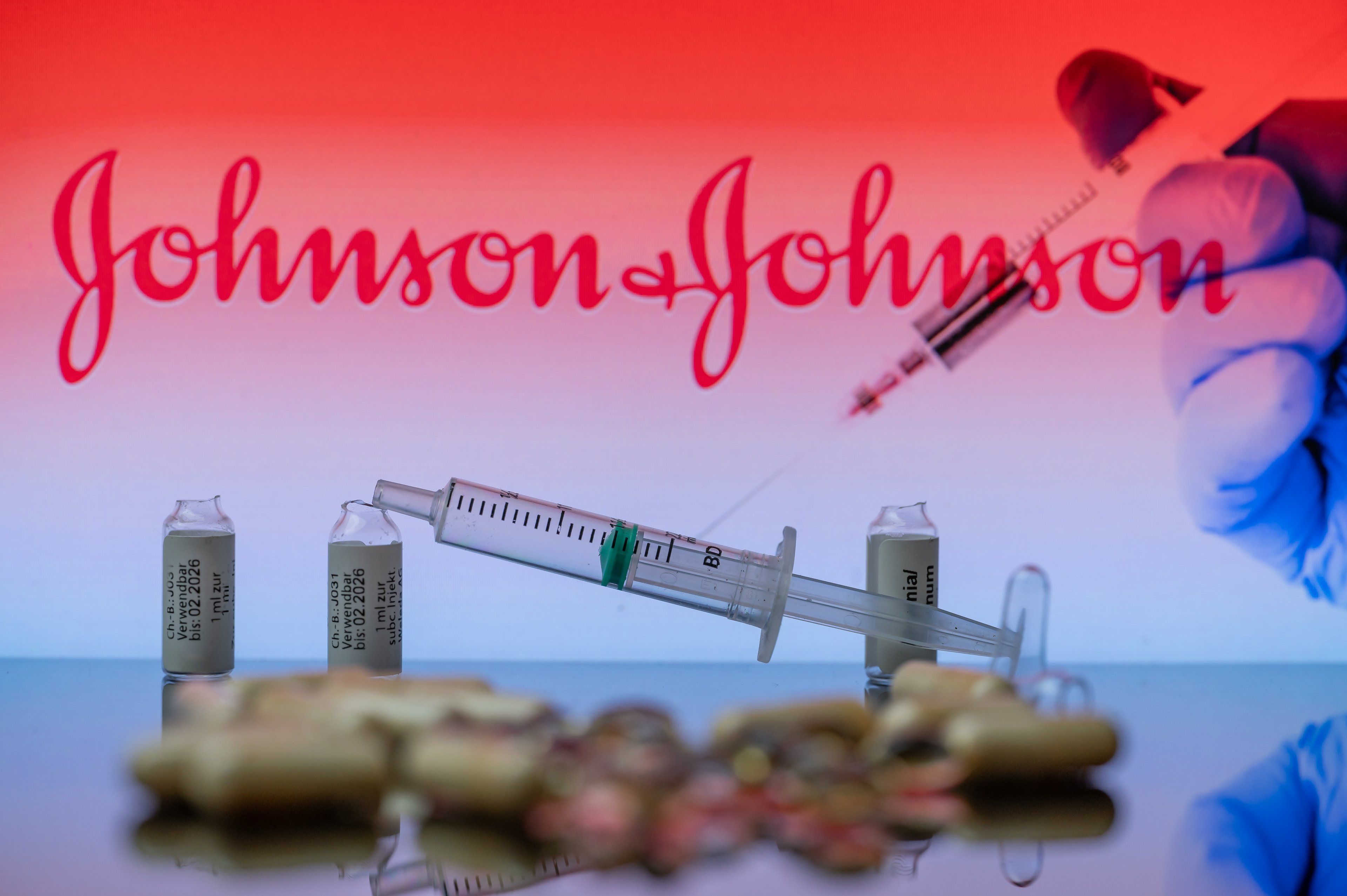Whether from niche vaccine developers or well-established pharmaceutical giants, over 70 potential coronavirus vaccines are currently undergoing development. Johnson & Johnson (JNJ 0.41%) was one of the first companies to declare that it was working on such a vaccine, and in March the company said it anticipates clinical trials beginning this fall.
However, there already being plenty of competition in this area, will Johnson & Johnson's new vaccine have what it takes to stand out against its dozens of rivals? Let's take a look at what the pharmaceutical giant's candidate has going for it right now.

Image source: Getty Images.
What makes Johnson & Johnson so special?
In January, Johnson & Johnson announced it would work on developing a COVID-19 vaccine, partnering with the Biomedical Advanced Research and Development Authority (BARDA), a division of the U.S. Department of Health & Human Services. While not the only company to begin around this time, what's impressive is that Johnson & Johnson has managed to develop not just one, but three potential candidates since research and development began in January. Although two of these are backup candidates in case its primary candidate encounters unexpected setbacks during testing, this still sets Johnson & Johnson apart from most other vaccine developers, most of which have just one COVID-19 candidate undergoing clinical trials.
Johnson & Johnson expects phase 1 trials in humans to begin in September, with the vaccine to potentially be ready for emergency use authorization in early 2021. While the company has business segments apart from its pharmaceuticals business, the healthcare giant does have some experience in developing potential vaccines for viruses -- including other types of coronaviruses, such as Middle East Respiratory Syndrome (MERS), for which the company began developing a potential vaccine back in 2018.
Although its prior vaccine development experience is nice, Johnson & Johnson's biggest potential advantage is its production capacity. Smaller vaccine developers, such as Inovio Pharmaceuticals (INO 3.80%), have said they would be able to produce 1 million vaccines by the end of the year. In comparison, Johnson & Johnson could produce up to 900 million doses by April 2021.
While Johnson & Johnson might be a little behind in clinical development in comparison to other COVID-19 vaccine developers, it's capable of ramping up production to a scale that other companies would struggle to achieve.
How much would it cost?
Johnson & Johnson hasn't mentioned exactly what it would charge consumers for the vaccine, although the company has said that it's not planning to make a profit from it. If that's true, it might charge less than profit-seeking vaccine developers. Regardless, governments would make sure that any vaccine is affordable to the public, possibly via subsidies to reduce the end cost for consumers.
Among other COVID-19 vaccine developers, Moderna (MRNA +6.28%) has said it plans to price its own vaccine in line with other respiratory infection vaccines. One leading pneumonia vaccine, Prevnar 13, costs around $800 per patient. Therefore, it's possible that Moderna could charge around $700 per dose of a COVID-19 vaccine. And Johnson & Johnson could very well charge less than that, maybe around $500.

Image source: Getty Images.
What about the competition?
The real question is how Johnson & Johnson will fare against other vaccine developers. Moderna and Inovio have already begun phase 1 clinical trials, in March and April, respectively. These two companies have other advantages as well.
Despite its small size, Inovio has plenty of experience with other coronaviruses; among other potential treatments, it has a MERS vaccine candidate (INO-4700) currently in phase 2 trials. As for Moderna, the company's main advantage comes from its use of mRNA technology. Compared to DNA-based vaccines -- most of them -- mRNA-based vaccines have the potential to be easier to develop as well as more effective. While still largely experimental, mRNA-based treatments represent the cutting edge of vaccine development and could eventually become the standard.
As for larger pharmaceutical companies, GlaxoSmithKline and Sanofi announced a partnership earlier this month to work on a potential COVID-19 vaccine. The companies have stated that if all goes well during clinical trials, they could be producing around 600 million doses by the second half of 2021. That would be impressive, but Johnson & Johnson's estimated 900 million doses by April 2021 would be more so.
What's the verdict?
Johnson & Johnson's biggest advantage over other COVID-19 vaccine developers isn't so much in the vaccine candidate itself but rather in the company's size, industry connections, and manufacturing capabilities. The ability to produce almost 1 billion doses by next year absolutely dwarfs what other, smaller vaccine developers are capable of. On that basis alone, Johnson & Johnson has a good chance of capturing a major share of the market for COVID-19 vaccines.
Couple that with the fact that Johnson & Johnson has two other backup vaccine candidates in case this current one doesn't work out, and the chances are good that at least one of these treatments will make it through clinical development.
That said, Johnson & Johnson isn't necessarily a great coronavirus stock per se. Since the company isn't looking to make a profit, it won't make much difference to the company's bottom line even if this COVID-19 vaccine turns out to be a success. If you're looking for a company that can grow explosively during this pandemic, Johnson & Johnson doesn't necessarily fit that bill. However, as a stable, dividend-yielding industry giant, it's a solid pick if you're looking for some stability in your portfolio.








